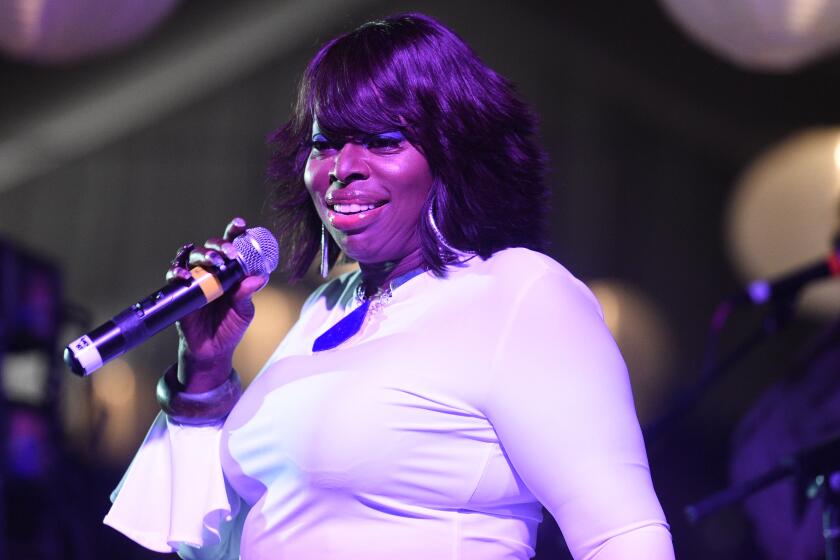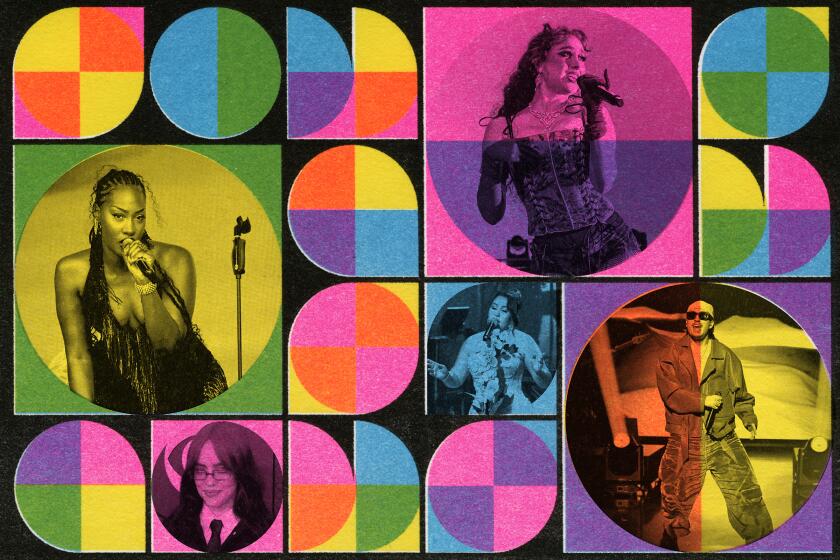Def Leppard’s Joe Elliott on music critics, streaming services and why you can’t be a real punk rocker unless you’re from Britain
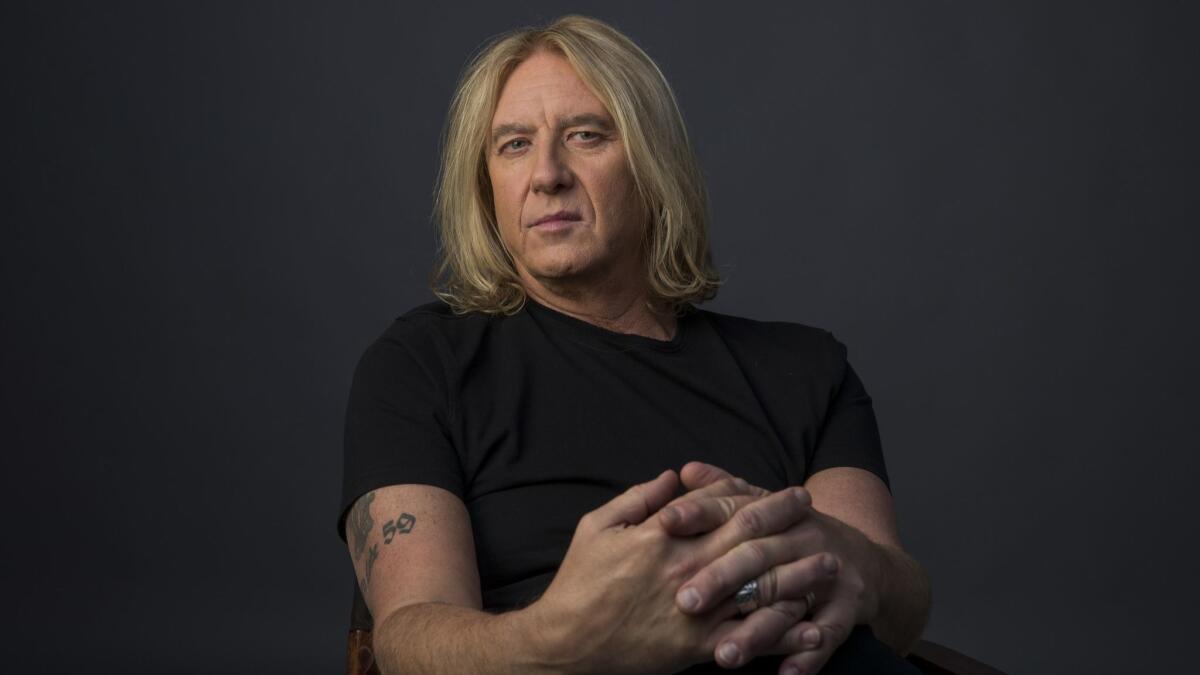
- Share via
Over a four-decade career as lead singer for Def Leppard, Joe Elliott has sung about sugar, passion killers, hypnosis, “magical mysteria,” pyromania, being brought to his knees by love and riding on a nightmare machine.
But until recently, Elliott and band, which formed in Sheffield, England, in the late ’70s, didn’t think much of music streaming.
Long after holdouts Led Zeppelin, the Beatles, Metallica and AC/DC remastered and unlocked their music, Def Leppard steadfastly refused to cave until it was able to negotiate what the band considered equitable compensation from Universal Music.
The two sealed a deal late last year, and soon after, the band’s music shot to the top of the rock charts as though this were 1983. Since then, sticky-sweet rock songs such as “Rock of Ages,” “Photograph” and “Pour Some Sugar on Me” — which remain staples on heartland FM rock stations — have earned millions of streams.
We weren’t trying to screw with [Universal] — which would be novel anyway, a band screwing a record company.
— Joe Elliott
It’s a busy summer for Elliott, whose band is currently on tour with Journey. He recently stopped by The Times’ offices to discuss the band’s history and its decision to finally release its classic albums to streaming services.
You were one of the last of the major rock bands to make your music available to streaming services. What took so long?
Our record deal with Universal was signed on the fifth of August 1979, and you might think I’m a nerd for remembering these dates, but it’s more the fact that on the fourth of August, we saw Led Zeppelin at Knebworth, which is a mighty big deal.
Because we signed a deal in ’79, there was no digital [agreement] in place, because there was no digital. Our contract with them was purely for the physical. When we did kind of iron out a deal for [streaming] in about 2010, it got torn from underneath us by previous regimes — let’s put it that way. That put us in a bit of a bad mood. We said, “OK, well, we’ll just do our own thing.”
You re-recorded “Hysteria” and “Rock of Ages.”
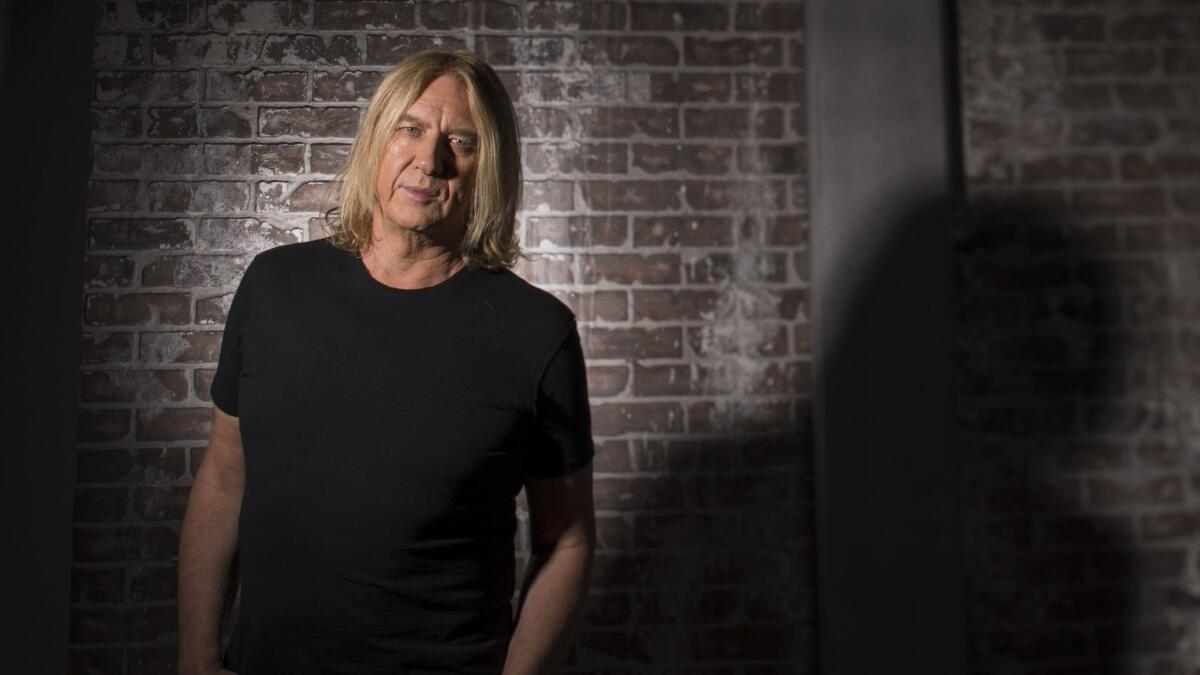
What changed?
The old regime left, and then the new regime came back to our management and said, “We need to re-look at this deal.” And we weren’t trying to screw with [Universal] — which would be novel anyway, a band screwing a record company.
When your original albums did arrive on streaming platforms, they shot to the top of the rock charts. Were you heartened by the reception?
I was flattered, humbled, heartened, excited — every positive emotion you can think of. And it’s so instant. Back in the day, you’d put your record out and then it’s like, “What’s happening?” You’d be waiting for these telexes to come out of the machine the size of ten 10 washing machines. ‘You sold this much ...’
I don’t think you can be punk unless you’re from the U.K.
— Joe Elliott of Def Leppard
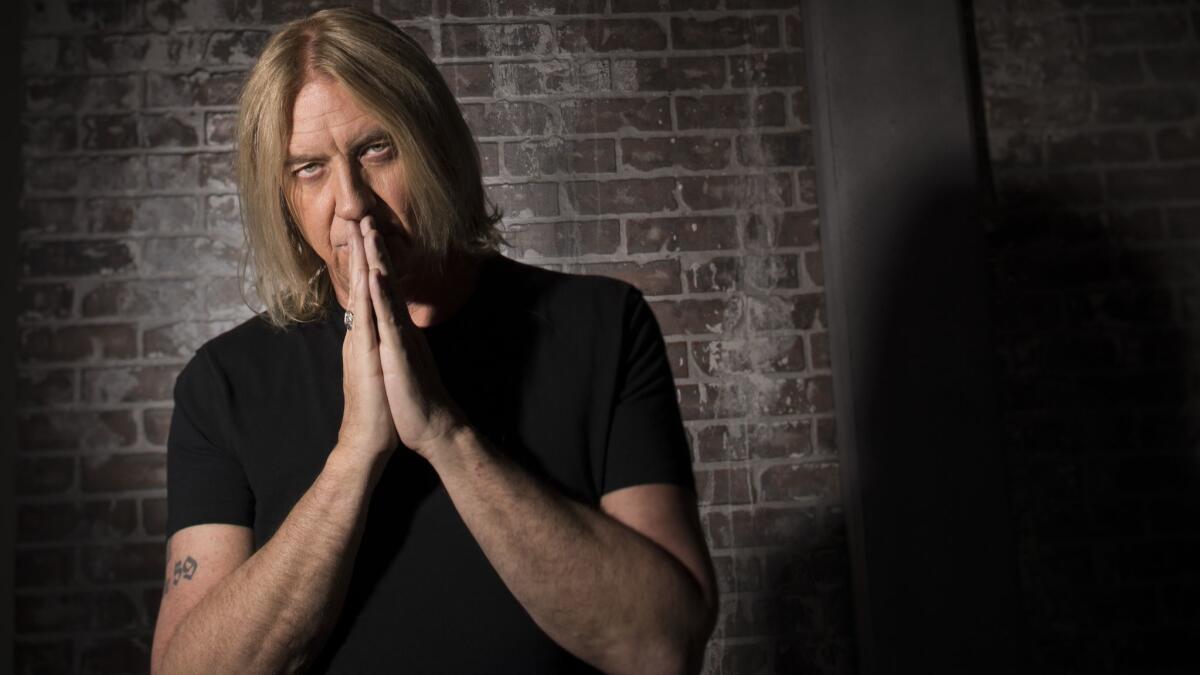
I went back and checked how The Times reviewed your early concerts. They weren’t kind.
Oh, yeah, we were never press darlings — never will be — and it’s not really long-term damage, from a career point of view. If you weren’t Lou Reed or Loudon Wainwright or Elvis Costello, you were just an idiot — just this brainless buffoon rock ’n’ roll nonsense. Those things, all they can do is make you bitter and twisted. Certain people will spend their lives seeking retribution on every journalist that gave you a bad review.
And at the time, punk was being praised by the critics.
That was the ironic thing. We were being told of all these bad reviews, and all these critics were raving about punk. We’re going, “Dude, we’re from England. We were there when punk happened. You’re five years behind the ... eight-ball here. You are missing the point.”
By the time the Clash were opening for the Who, they weren’t a punk band anymore. The Pistols basically imploded in San Francisco in 1978. That was two years before we set foot in America. Skinny ties and the Knack were probably as close to punk.
Well, there was Black Flag, the Germs and hardcore.
It was hardcore, but you called it punk. If you want my honest opinion, I don’t think you can be punk unless you’re from the U.K. — I generally don’t. I think you can like it and want to make punk music, like Joan Jett does or Green Day. I think you can be generally great bands, but I think that the whole punk thing was born — it’s like the blues. You can’t really be a bluesman if you’re English.
Well, you can, because Clapton is, but he’s not authentic in the sense of Sonny Boy Williamson or B.B. King, any of those guys. You have to come from a certain place. It’s not just an art. It’s geographic, to a point. You could play reggae music, but you’re probably not going to really have it in your heart and soul unless you’re from Jamaica.
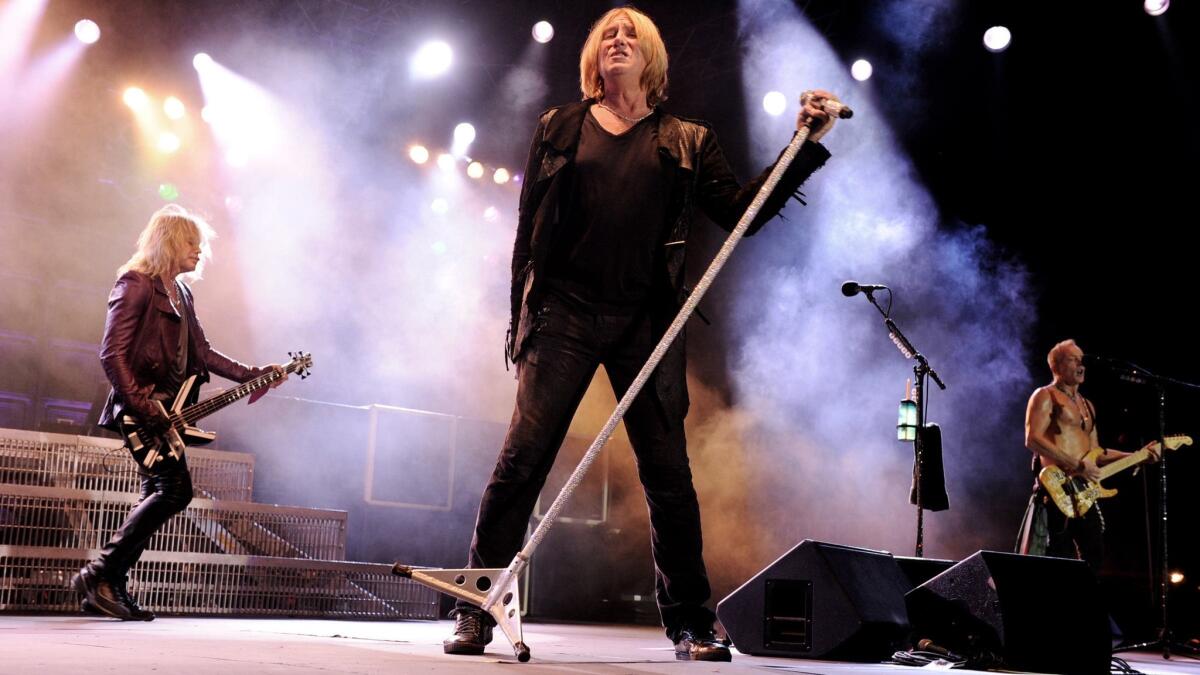
For tips, records, snapshots and stories on Los Angeles music culture, follow Randall Roberts on Twitter and Instagram: @liledit. Email: [email protected].
More to Read
The biggest entertainment stories
Get our big stories about Hollywood, film, television, music, arts, culture and more right in your inbox as soon as they publish.
You may occasionally receive promotional content from the Los Angeles Times.






